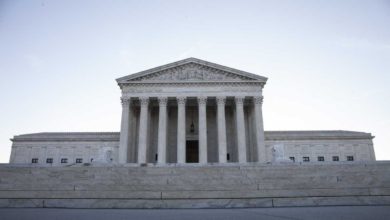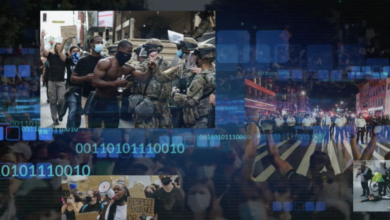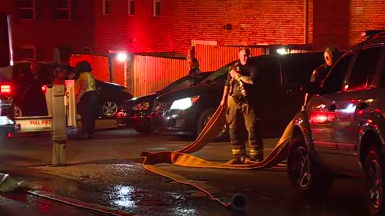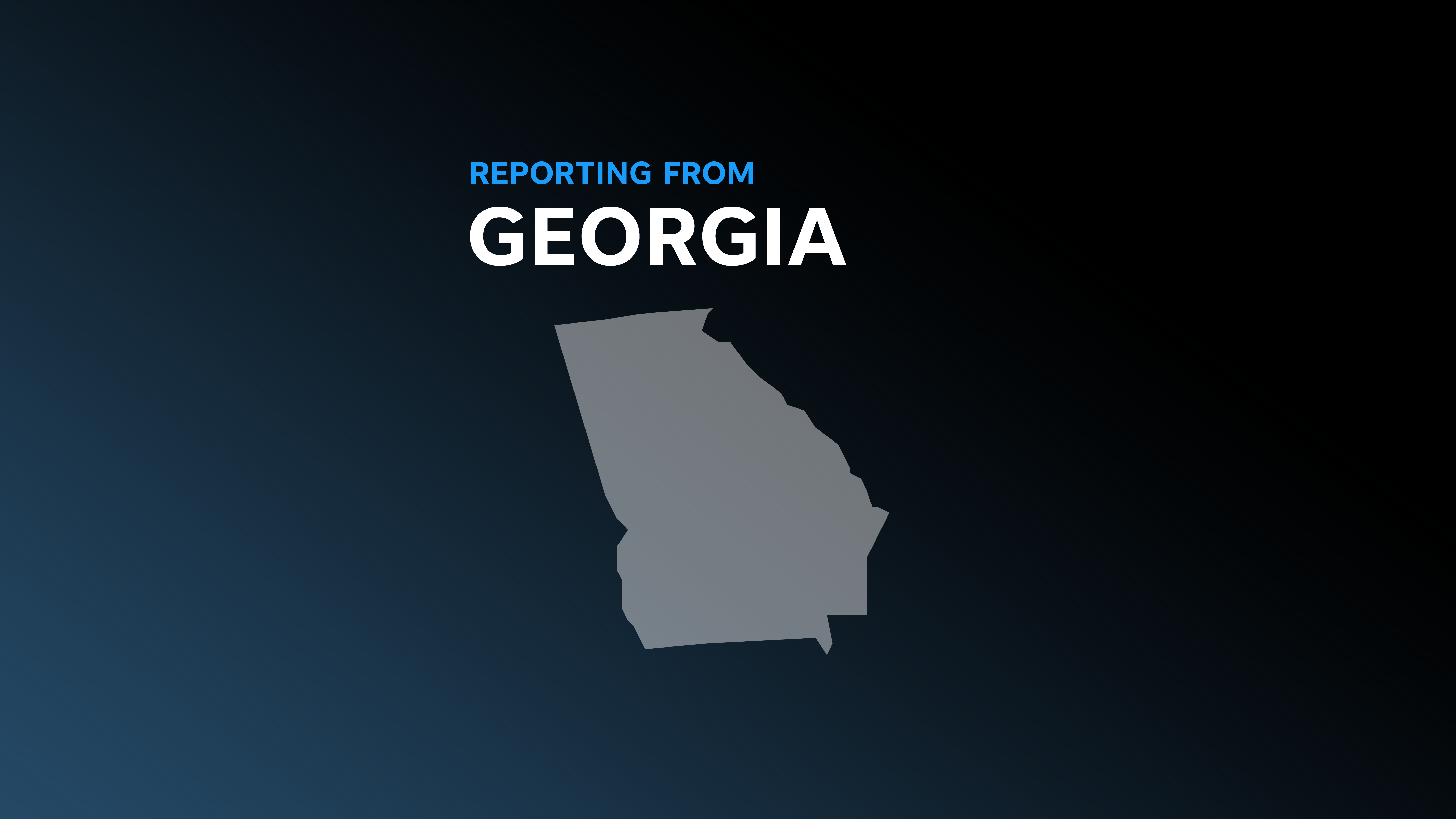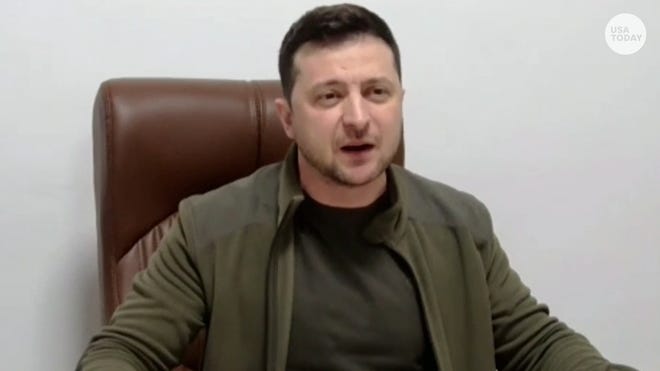
After a fire at the Europe's largest nuclear power plant was extinguished Friday following a "reckless and dangerous" Russian attack, there are no indications of radiation leaking, according to a senior U.S. Defense Department official.
Nuclear power plants are not designed to withstand military attacks, underscoring the recklessness of the assault, said the official, who discussed intelligence reports on condition of anonymity.
The Russians apparently captured the plant with an eye toward controlling the Ukrainian population, the official said. Operating the plant would allow them to deliver power, or to withhold it to punish Ukrainians. There is “great concern,” the official said, about who the Russians have put in charge of operating the plant, their level of expertise and what their intentions are.
Enerhoatom, Ukraine's state nuclear plant operator, said three Ukrainian soldiers were killed and two wounded in the attack, while Rafael Mariano Grossi, the head of the United Nations’ atomic watchdog agency, said two people were injured in the blaze. Only one reactor is operating at around 60% capacity, the U.N. said.
The fire sparked fears of a disaster similar to the 1986 Chernobyl accident, which occurred about 65 miles north of the Ukrainian capital. Ukraine's Minister of Foreign Affairs of Ukraine tweeted, "If it blows up, it will be 10 times larger than Chornobyl!" The U.N. Security Council was gathering in an emergency meeting Friday in the wake of the attack.
Meanwhile, the Russian advance on the capital of Kyiv remains largely stalled about 15 miles from the city center, the official said. Ukrainian forces have hindered its progress by blowing up a key bridge and attacking vehicles in the convoy that stretches for 40 miles.
Though bogged down, the Russians continue to shell Ukrainian cities, striking residential areas and civilian infrastructure, the official said. The Russians are estimated to have moved 92% of the combat forces Russian President Vladimir Putin committed to the invasion. The Ukrainians continue to operate the majority of the country's military aircraft, and the airspace over Ukraine remains contested, the official said.
More than two-thirds of the $350 million military aid package recently approved by President Joe Biden has arrived in Ukraine, according to a second senior Pentagon official. It is the largest single batch of the $3 billion in military assistance for Ukraine since 2014. It includes anti-armor weapons badly needed by Ukrainian forces, the official said.
— Tom Vanden Brook and Ryan Miller
Latest developments:
►NATO Secretary-General Jens Stoltenberg said Friday that Russian forces had used cluster bombs and that the organization had "seen reports of the use of other types of weapons which would be in violation of international law." "This is brutality. This is inhumane," Stoltenberg added, saying Russian President Vladimir Putin and Belarusian President Alexander Lukashenko should be held accountable for their actions.
►Ukrainian Defense Minister Oleksii Reznikov said on Facebook the country's navy intentionally sank its flagship frigate, Hetman Sagaidachny, which was under repair, to prevent Russian capture.
►Talks on Thursday between Russia and Ukraine yielded a tentative agreement to set up safe corridors to evacuate citizens and deliver humanitarian aid.
►Trading on the Moscow exchange will be closed Friday as Russia’s ruble has lost about 5% against the U.S. dollar, further plunging since Western governments imposed sanctions that cut off much of the country's access to the global financial system.
►The Pentagon said it established a direct communication line Tuesday with the Russian ministry of defense “for the purpose of preventing miscalculation, military incidents, and escalation.”
►Acclaimed soprano Anna Netrebko has withdrawn from her upcoming New York performances after not complying with the Metropolitan Opera's condition that she repudiate her public support for Putin, the Met said on Twitter.
Quick links:
GET THE LATEST UKRAINE UPDATES:We'll email you the latest news once a day.
'BOMBS, BOMBS, BOMBS':Ukrainian refugees describe harrowing journey to Poland
WHAT IS AN ARMISTICE?:Here's what you need to know during talks between Russia and Ukraine.
US does not advocate for killing Vladimir Putin, White House says
White House press secretary Jen Psaki categorically rejected an idea posed by Republican Sen. Lindsey Graham that implied someone in Russia should assassinate Russian President Vladimir Putin.
"No, we are not advocating for killing the leader of a foreign country or a regime change,” Psaki said during a press briefing. “That is not the policy of the United States."
In his tweet, Graham called for someone to “take this guy out,” in reference to Putin and said it would be a "great service" to Russia and the world at large.
"That is not the position of the United States government and certainly not a statement you'd hear come from the mouth of anybody working in this administration," Psaki told reporters.
— Chelsey Cox
Vladimir Putin outlaws spread of 'fake' news against Russia's position
Russian President Vladimir Putin has signed a bill introducing a prison sentence of up to 15 years for spreading information that goes against the Russian government’s position on the war in Ukraine.
The bill criminalizing the intentional spreading of what Russia deems to be “fake” reports about the war was quickly rubber-stamped by both houses of the Kremlin-controlled parliament earlier Friday.
The BBC said it was temporarily suspending the work of all its journalists in Russia as a result.
"The legislation appears to criminalize the process of independent journalism," Tim Davis, the publications director said. "It leaves us no other option than to temporarily suspect the work of all BBC News journalists and their support staff within the Russian Federation while we assess the full implications of this unwelcome development."
Russian authorities have repeatedly decried reports of Russian military setbacks or civilian deaths in Ukraine as “fake” reports. State media outlets refer to Russia’s invasion of Ukraine as a “special military operation” rather than a “war” or “invasion.”
The law includes sentences of up to three years or fines for spreading what authorities deem to be false news about the military, but the maximum punishment rises to 15 years for cases deemed to have led to “severe consequences.”
Russian regulator says it's banning Facebook in country
Russia's media regulator said Friday it was blocking access to Facebook in the country.
The news came amid a crackdown on media sources in Russia after a law passed in its parliament that allows for 15-year prison sentences for intentionally spreading “fake” information about military action.
"We will continue to do everything we can to restore our services so they remain available to people to safely and securely express themselves and organize for action," said Nick Clegg, president for global affairs for Facebook's parent company Meta.
Clegg said Monday the company wasn't pull its platforms from Russia on its own accord because Russian people were using them to protest the war. Clegg said Russia had been "throttling" the platform, though, to prevent protests.
1.2 million refugees have fled Ukraine, UN says
More than 1.2 million refugees have fled from Ukraine since the conflict began, the United Nations' refugee agency said Friday.
Thursday, more than 165,000 people left the country, according to the United Nations High Commissioner for Refugees.
Most leaving are women, children and older people , said spokesperson Shabia Mantoo, and the majority are fleeing to Poland, though others have gone to Hungary, Moldova, Slovakia and Romania. Some have also fled to Russia and Belarus.
However, an increasing number of reports indicate people of color fleeing Ukraine are facing discrimination at the border. The crisis highlights a double standard in the way nations treat refugees based on country of origin, race, religion and more, academics and refugees say. Many of the same European nations that turned away refugees from the Middle East, Africa and Asia in the past are now largely welcoming refugees from Ukraine.
— Ryan Miller and Grace Hauck
NATO head says alliance won't implement no-fly zone in Ukraine
NATO Secretary-General Jens Stoltenberg said Friday the military organization would not implement a no-fly zone or place troops on the ground in Ukraine, describing it as a "painful decision."
"Allies agree that we should not have NATO planes operating over Ukrainian airspace or NATO troops on Ukrainian territory," Stoltenberg told reporters in Brussels after chairing a meeting of NATO foreign ministers.
Stoltenberg said bringing NATO troops or planes to Ukraine would only further escalate the conflict and bring about more destruction. "If we did that, we'd end up with something that that could end in a full fledged war in Europe involving many more countries and causing much more human suffering," he added.
UN Human Rights Council to set up panel for Ukraine
A three-person expert panel will monitor potential human rights violations in Ukraine after an overwhelming vote from the United Nation's Human Rights Council.
The U.N.'s top human rights body voted 32-2, with 13 abstentions, to create the international panel. Only Russia and Eritrea opposed the resolution, with China abstaining.
In a tweet, Ukrainian President Volodymyr Zelenskyy praised the creation of the panel, saying, "Russian war criminals will be held accountable."
International law experts have raised concerns about war crimes, including the targeting of civilians, and the prosecutor of the International Criminal Court, which is separate from the U.N., said earlier this week he was also opening an investigation.
Western leaders condemn Russian attacks after at Ukraine power plant
The office of British Prime Minister Boris Johnson says he will seek an emergency U.N. Security Council meeting after Russian troops in Ukraine attacked a nuclear power plant and sparked a fire.
Johnson’s office says he spoke to Ukrainian President Volodymyr Zelenskyy in the early hours of the morning. He says Britain will raise the issue immediately with Russia and close partners.
“The Prime Minister said the reckless actions of (Russian President Vladimir) Putin could now directly threaten the safety of all of Europe,” Johnson’s office said in a statement. “He said (the United Kingdom) would do everything it could to ensure the situation did not deteriorate further.”
Canadian Prime Minister Justin Trudeau says he also spoke with Zelenskyy about the attacks on the power plant.
“These unacceptable attacks by Russia must cease immediately,” he said on Twitter.
China also said it is “seriously concerned about the safety and security” of nuclear facilities in Ukraine.
Ukrainians in US granted temporary protection from deportation
The Department of Homeland Security on Thursday announced temporary protected status (TPS) for Ukrainians living in the United States, which will shield them from deportation for the next 18 months, as Ukraine battles ongoing attacks from Russia.
“Russia’s premeditated and unprovoked attack on Ukraine has resulted in an ongoing war, senseless violence, and Ukrainians forced to seek refuge in other countries,” Homeland Security Secretary Alejandro Mayorkas said in a statement. “In these extraordinary times, we will continue to offer our support and protection to Ukrainian nationals in the United States.”
Individuals must have continuously lived in the U.S. since March 1 to be eligible for TPS, DHS said. That would apply to approximately 30,000 Ukrainian nationals. Those who attempt to travel to the U.S. after March 1 do not qualify for TPS.
— Rebecca Morin
Contributing: The Associated Press




